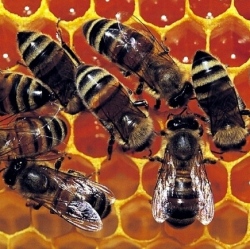
A controversial calorie-counting wristband, which had been denounced by some medical experts, has been put to the test by the BBC. The creators of the GoBe wristband say it can automatically, non-invasively count the calories eaten by the wearer.
After crowdfunding $1.1m (£707,000) to build the product, the company experienced an intense backlash – with critics saying it was a "scam". The BBC challenged its makers to prove it was capable of doing what they said. So when George Mikaberydze, the firm’s co-founder, agreed to let the BBC test GoBe, we were slightly surprised.
Spoiler: it worked better than we expected, but our test was hardly scientific and far from conclusive.
Food test
On the plus side, the experiment involved eating and drinking a meal of our choosing after we rejected HealBe’s offer to pick out the food that would be consumed.
On the minus side, we did not have the opportunity to try out GoBe ourselves as we were told "it takes time to calibrate" to a specific person, and so the results were based on us stuffing Mr Mikaberydze with snack food.
Here’s what we fed him:
Half a cheese and turkey sandwich (125 calories)
A bottle of apple juice (210 calories)
A small Snickers chocolate bar (220 calories)
The smartphone app, which connects to the GoBe wirelessly over Bluetooth, started rising within 15 minutes.
The result was that the software estimated Mr Mikaberydze had eaten 514 calories, which wasn’t far off the 555 calories suggested by the food labels. And to be fair, the number was still slowly climbing when we had to part company.
